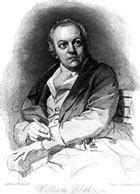A Quote by Epicurus
Stranger, here you will do well to tarry; here our highest good is pleasure.
Related Quotes
Sorrow, terror, anguish, despair itself are often the chosen expressions of an approximation to the highest good. Our sympathy in tragic fiction depends on this principle; tragedy delights by affording a shadow of the pleasure which exists in pain. This is the source also of the melancholy which is inseparable from the sweetest melody. The pleasure that is in sorrow is sweeter than the pleasure of pleasure itself.
He that will have a cake out of the wheat must tarry the grinding. Have I not tarried? Ay, the grinding; but you must tarry the bolting. Have I not tarried? Ay, the bolting; but you must tarry the leavening. Still have I tarried. Ay, to the leavening; but here's yet in the word 'hereafter' the kneading, the making of the cake, the heating of the oven, and the baking; nay, you must stay the cooling too, or you may chance to burn your lips.
It is pleasure that lurks in the practice of every one of your virtues. Man performs actions because they are good for him, and when they are good for other people as well they are thought virtuous: if he finds pleasure in helping others he is benevolent; if he finds pleasure in working for society he is public-spirited; but it is for your private pleasure that you give twopence to a beggar as much as it is for my private pleasure that I drink another whiskey and soda. I, less of a humbug than you, neither applaud myself for my pleasure nor demand your admiration.
Industry is not only the instrument of improvement, but the foundation of pleasure. He who is a stranger to it may possess, but cannot enjoy, for it is labor only which gives relish to pleasure. It is the indispensable condition of possessing a sound mind in a sound body, and it is the appointed vehicle of every good to man.
None the less, perhaps, the highest pleasure in art is identical with the highest pleasure inscientific theory. The emotion which accompanies the clear recognition of unity in a complex seems to be so similar in art and in science that it is difficult not to suppose that they are psychologically the same. It is, as it were, the final stage of both processes.
When shall it be that we shall taste the sweetness of the Divine Will in all that happens to us, considering in everything only His good pleasure, by whom it is certain that adversity is sent with as much love as prosperity, and as much for our good? When shall we cast ourselves undeservedly into the arms of our most loving Father in Heaven, leaving to Him the care of ourselves and of our affairs, and reserving only the desire of pleasing Him, and of serving Him well in all that we can?







































